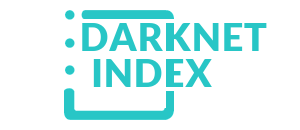The darknet, also known as the dark web, is a concealed section of the internet that's inaccessible via standard search engines. You can only access it using special software, settings, or authorization. This area comprises websites and content that are purposely kept hidden from public view.
Accessing darknet requires using Tor Browser, a special web browser that routes your internet traffic through a global network of relays managed by volunteers. This way, it becomes very difficult to trace which websites you're visiting, and these sites won't know where you are located.
When visiting the dark web, use a secure browser like Tor, do not reveal any of your personal information, and don't open suspicious files or links to stay safe.
The Darknet is often utilized for secure communication, discreet information or file sharing, anonymous research without identity exposure, and occasionally for engaging in illicit activities. It is also recognized for hosting underground black markets(darknet markets), whistleblowing platforms, and discussion boards that champion freedom of speech.
While accessing Darknet Markets themselves is typically not against the law in most places, engaging with illicit goods within them is generally considered a crime. On the other hand, some people might visit Darknet Markets for lawful purposes such as research, journalistic work, or simply to explore online communities. It's essential to know the local laws regarding online activities, and be cautious when using these platforms to avoid any potential issues.
Texas Darknet Drug Trafficking Gang Sentenced for Cryptocurrency Money Laundering
A Texas drug trafficking gang, consisting of six members, has received sentences ranging from probation to 84 months for money laundering related to cryptocurrencies.
This ruling came after extensive investigations by the FBI, DEA, and police chiefs from Houston and Mason. They were part of the OCDETF. It is the Organized Crime Drug Enforcement Taskforce.
The collaboration shows US authorities' commitment to fighting high-level drug traffickers and money launderers. It aims to dismantle illegal networks that use the darknet and other online platforms for crime.
Monthly Laundering of $50,000 on the Darknet
From July 2019 to December 2020, the darknet gang "Loverbois" sold nearly 12 kg of methamphetamine each month on darknet markets. They laundered about $50,000 using cryptocurrency. The drugs were disguised as Adderall pills, with the gang processing around 20 orders daily during this timeframe.
The U.S. Attorney’s Office for the Southern District of Ohio disclosed the sentencing of the six members of the "Loverbois" operation. They sold at least 11.98 kilograms of methamphetamine and laundered $15,000 to $50,000 a month through cryptocurrency.
The operation was uncovered when undercover agents in Ohio ordered counterfeit pills. This led to a federal grand jury indictment in June 2021. One gang member, Kevin Tran, received his sentence on September 30.
Specific Roles Within the Gang
Court documents reveal that Duc Cao Phung managed the "Loverbois" accounts. He oversaw online orders from darknet markets and crypto transactions. He sourced the pills from William David Goode Harris and Ainoa Winniec Plumber Guzman. They used industrial equipment to make the drugs at their Houston home.
Tran was in charge of drug supply and transactions, while Zachary Kacmar Pray handled logistics. Phung also coordinated the receipt of cryptocurrencies in exchange for pills and the laundering of proceeds, while another member, John Dang, was responsible for packaging and laundering efforts.
“Dang packaged pills for shipment and assisted in moving and laundering cryptocurrency, processing about $15,000 monthly,” according to court documents.
The substantial volume of drugs trafficked resulted in severe consequences for all involved in the cartel. Deputy Criminal Chief Fredrick C. “Fritz” Shadley served as prosecutor in this case, marking a significant win for law enforcement against criminal operations.
This case underscores the increasing trend of money laundering and cybercrime involving digital assets as more individuals adopt cryptocurrencies. Recently, a 21-year-old from Indiana confessed to defrauding over 500 people out of $37 million in cryptocurrency during a 2022 cyber-attack. Additionally, in June, Costa Rican law enforcement arrested at least 36 individuals connected to a criminal gang involved in cryptocurrency money laundering, which included government officials and some law enforcement personnel.
